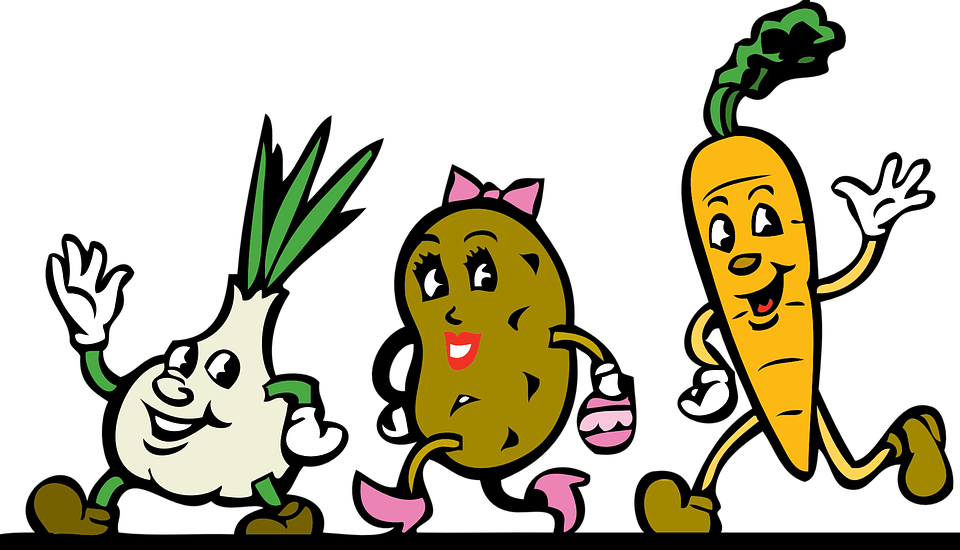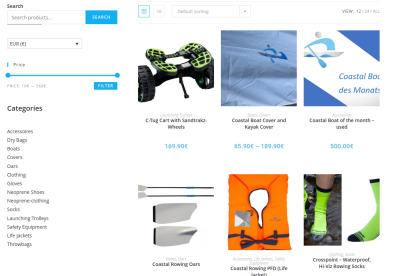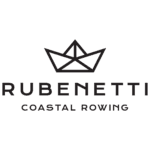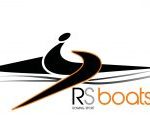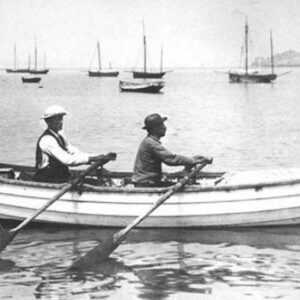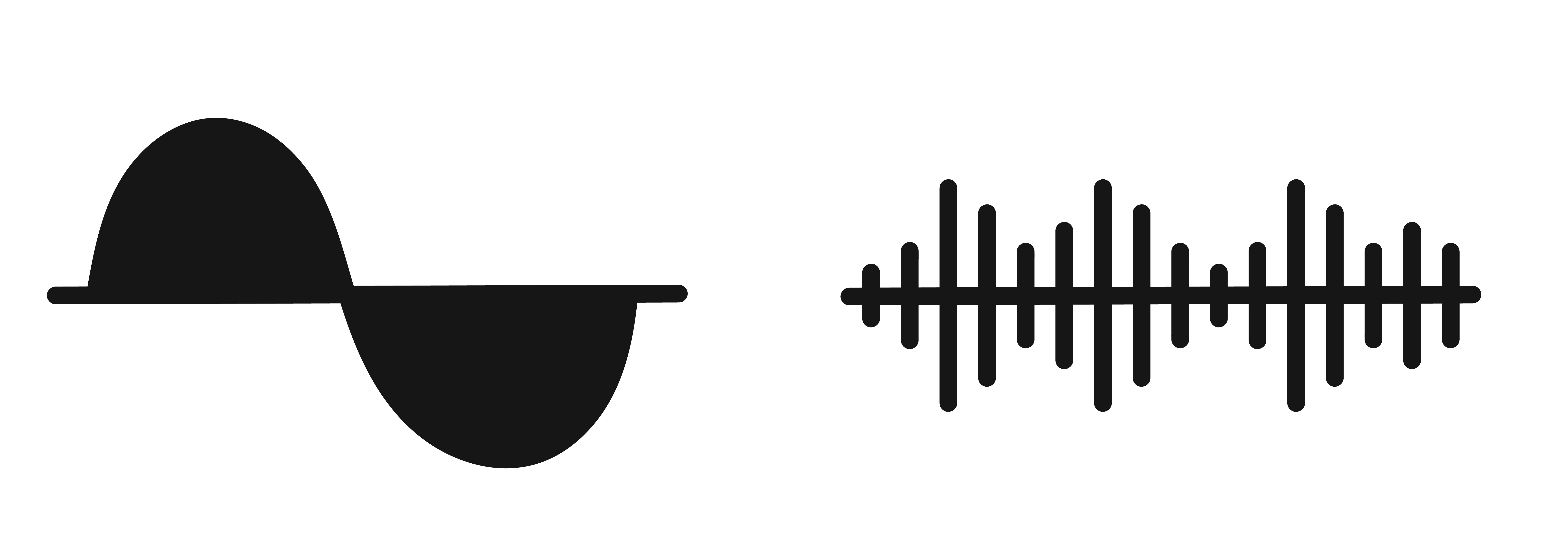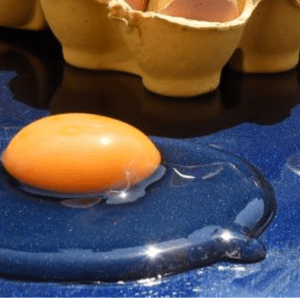The right sports nutrition does not always come from a can. The Austrian Rowing Association has summarized how to keep your body fit with simple foods – The proper diet for rowers!
The proper diet for rowers – Maximum performance through optimal nutrition
To row at your best, your body and mind are challenged. And that’s where nutrition also plays an important role. Most major rowing federations have long recognized this and provide a team of support staff (doctors, nutritionists, physiotherapists, psychologists, strength and conditioning coaches) for athletes to meet the physical and mental needs of their athletes. Most rowers don’t usually have access to such staff, but in turn, we can do a lot for ourselves.
You can find out exactly what that looks like here in our article. We took a closer look at how you can maximize your performance and become your own support team.
General information about diet and nutrition
The diet is probably the area that can most and most easily affect an athlete’s performance. Our nutrition is our body’s fuel, so to speak. If our body doesn’t have enough, doesn’t have the right kind of fuel, or doesn’t have the right fuel at the right time, it will impact our race performance and our training. The accuracy of nutrition is often underestimated by rowers, but it should be planned just as your training is planned. Proper nutrition will help maximize the return on each training session and prepare your body for the next session.
No single food will provide your body with everything it needs. Your diet should be varied, and all food groups should be covered. It is important to eat regularly, never skip meals, and always stay hydrated.
Food for rowers before training and races
You must give your body enough energy to complete a training session as designed. Not eating enough beforehand will result in the last parts or last minutes of a session being done on an empty stomach. This puts more stress on the body, and you struggle to finish the last few strokes effectively and with proper form, which can lead to injury as well as reduce the effectiveness of the session. Therefore, you must provide your body with enough energy before a session (known as pre-fueling) to get the most out of you.
Many rowers train early in the morning, and it is stressful to get to the boathouse or gym on time. Many skip breakfast to save time, often with the belief that they wouldn’t have time to properly digest the food anyway. Unfortunately, that is a wrong assumption. The body has fasted for eight or more hours during sleep, energy stores are low, and the metabolism is virtually shut down. This is not a good starting point for a few hours of intense training.
Example of a proper eating strategy
What should I eat before training?
Morning: A good strategy is to eat something as soon as possible after you wake up in the morning. This should not be a big, heavy meal, but something small that contains carbohydrates to boost your metabolism and provide instant fuel for your training session. You can eat such foods while packing your training bag or on the way to the boathouse. You should eat at least 1 hour before training and ideally consume 1 g of carbohydrates per 1 kg of body weight (for example: an 85 kg rower should consume 85 g of carbohydrates).
Foods for breakfast before training:
Muesli with milk / yogurt and fruit; porridge; toast or English muffins with jam; fruit juice or smoothie; yogurt with fruit.
Heidi Dietrich (journalist and rower from Seattle) writes about how her switch to early morning eating improved her workouts, “I put my body in a starvation state by not eating anything right before or after my workout. My early morning metabolism went straight into hibernation. I had been training with a half-empty stomach, especially during the final circuits or power strokes of training. With my little early morning breakfast, I gained the energy to train with focus for even longer. […] It made the difference between a good, effective training session and a session that was actually a waste of time.”
Lunch: For sessions later in the day, a larger meal eaten well in time before the workout is preferred. It should be eaten between two and four hours before training and contains ideally 1-3 g of carbohydrates per 1 kg of body weight, including some protein.
Meals before training:
Sandwich (or similar) with chicken, cheese and salad; jacket potatoes with beans / cheese / tuna / coleslaw; pasta with chicken and vegetables.
Pre-race meals should follow a similar strategy. Make sure meals are light and eaten 2–4 hours before the race. Use low-fiber foods to help with a nervous stomach.
The proper diet for rowers: the recovery phase after training
But not only the right food before the workout is elementary, also the right food after is important to give your body what it needs. This allows your body to better benefit from the previous training session and recover for the next one. Proteins are needed to repair muscles, replenish lost energy and maintain the immune system. Carbohydrates replace depleted glycogen stores and help reduce fatigue and injury.

To properly recover from a training session, it is essential to provide the body with proper nutrition as soon as possible. A post-workout snack should be consumed within 20 minutes of the workout and contain 50 to 60 grams of carbohydrates and 10 to 20 grams of protein. At the next meal, a larger post-workout meal should be consumed, containing 1-1.2 g of carbohydrate per 1 kg of body weight and 10-20 g of protein. Foods with higher glucose should be eaten if your next training session is in less than 8 hours. Otherwise, foods with low glucose should make up the majority of the meal.
Post workout snack and meals:
500ml recovery shake and a banana; 500ml skim milk and a granola bar; sandwiches or bagels with tuna/cheese/chicken/ham plus a piece of fruit; 200g low-fat yogurt with fruit and granola bar; 2 slices of malt bread and 100g yogurt; bowl of granola with 300ml milk; 200g baked beans on toast (For every 1g of fat, there should be at least 5g of carbohydrate).
Adequate fluid intake should always be ensured
Dehydration leads to earlier exhaustion in a training session and impairs mental function, concentration, coordination, and reaction times. A good strategy to maintain adequate hydration is to drink “little and often” throughout the day. Optimal fluid intake can also be determined by urine color: Straw yellow is ideal, and a darker color indicates dehydration. If you find that you are somewhat dehydrated, drink 6 ml of water per 1 kg of body weight in the 4 hours before a session and another 4 ml per 1 kg in the last 2 hours before training.
Hydration is also important during training
During exercise, the goal should be to limit water loss to 1-2% of body weight by drinking water or a sports drink. An athlete weighing 85 kg should lose no more than 1.7 kg during a session, ideally less. Water loss can be measured by checking body weight immediately before and after a session. After a few tests, you will learn how much water you are really losing and can make sure you are taking in enough fluid during your workout. Remember that you will lose more water in higher temperatures. So take an extra water bottle with you on hot days. Especially on the coast with wind, sometimes you don’t even notice how hot it actually is. So pay special attention to your fluid intake here as well. Isotonic drinks are quickly absorbed and contain electrolytes to replace those lost during exercise. Sports drinks with carbohydrates provide extra energy during exercise and are useful for long sessions. But of course, look for sugar-free variants here.
The proper diet for rowers: What is the focus – muscle mass or weight loss?
Rowers should try to build muscle mass to create strength without adding body weight. It is important to snack after a workout to give the body protein and carbohydrates to effectively build and repair muscles. Protein is especially important immediately after a weight or strength workout. Whey and casein-based proteins (found in milk) produce the greatest gains in lean muscle mass, making milk an excellent post-workout drink.
If athletes are aiming for weight loss, they should reduce their caloric intake while still making sure to follow a good nutritional intake. A pre-workout meal is important to boost metabolism and increase energy expenditure during the day. Aim to reduce caloric intake by 500kcal per day – while losing 0.5 kg per week.
Some good advice for this is to reduce portion sizes or add more fruits and vegetables to meals to make the plate look fuller. You can usually avoid foods labeled Light, as they usually just use different ingredients. Look for hidden calories, especially in fruits or vegetables (like squash) and fruit juices. If you don’t want to give up flavored drinks, look for low-sugar alternatives.
Immune system boosts and injury prevention
Eating isn’t just about energy intake and getting the best workout results. Our diet also plays an important role in the effectiveness of our immune system. Diets low in protein and carbohydrates or high in fat can reduce immune function. A diversified diet and supply of all essential nutrients is also important to prevent injury and support rehabilitation. Most injuries in rowing come from breakdown of muscles and joints due to repetitive motion. But let’s take a closer look at each nutrient.
Vitamin C and zinc are essential for the immune system and can be found in many fruits and seeds, for example. Essential fatty acids (omega 3 and omega 6) also play an important role in immune activation. These fatty acids are found mainly in fatty fish such as salmon, mackerel, trout and fresh tuna, but also olive oil. Calcium is needed to build bone, but is also used in other functions of the body, such as nerve transmission and muscle contraction. When calcium is deficient, the body must take calcium from the bones to be used in other areas, and thus the bones are weakened. Vitamin D is used in the processing of calcium, so the intake of these two nutrients is important for a strong skeleton. Young, active women are at particularly high risk for calcium and vitamin D deficiency (Female Athlete Triad). Calcium is found in milk, cheese, yogurt, and also in Brazil nuts, almonds, green leafy vegetables, and tofu. Vitamin D is mostly absorbed from sunlight, but can also be found in fatty fish, eggs, and fortified spreads and cereals.
Caution with alcohol
Alcohol: a no-go before training! Alcohol affects the body in many ways, and some athletes avoid alcohol completely to avoid negative effects. Alcohol is often referred to as “empty calories” and contains 7 calories per gram, while other carbohydrates contain 4 calories per gram. However, alcohol has no nutritional benefits. The body cannot store alcohol, so it metabolizes it immediately, takes priority over other metabolic processes, and fat is stored rather than metabolized. Alcohol can cause dehydration and sleep disturbances, increase appetite, and impair reaction time. Alcohol also lowers testosterone levels, which negatively affects muscle growth and recovery, as well as athletic performance.
Most of these effects are only relevant to performance from consuming large amounts of alcohol, but as with all diets, you should carefully consider your alcohol consumption in your diet. And yes, especially in the summer, we all sometimes find it hard not to have a cool, refreshing beer in the beer garden after a workout.
The proper diet for rowers: Important for an all-around successful training
I hope we were able to give you a little insight into the proper diet for rowers who want to optimize their training results. To summarize, I would like to emphasize 2 points here – Always drink enough and never train with an empty stomach. Especially in the summer on the beach while Coastal Rowing, both aspects get easily forgotten. So that you don’t sink, lose strength or get health problems from rowing, you should always bring small snacks and enough water with you to the beach.
What tips and tricks do you have on the subject of diet for rowers? Let us know and write it in the comments!

